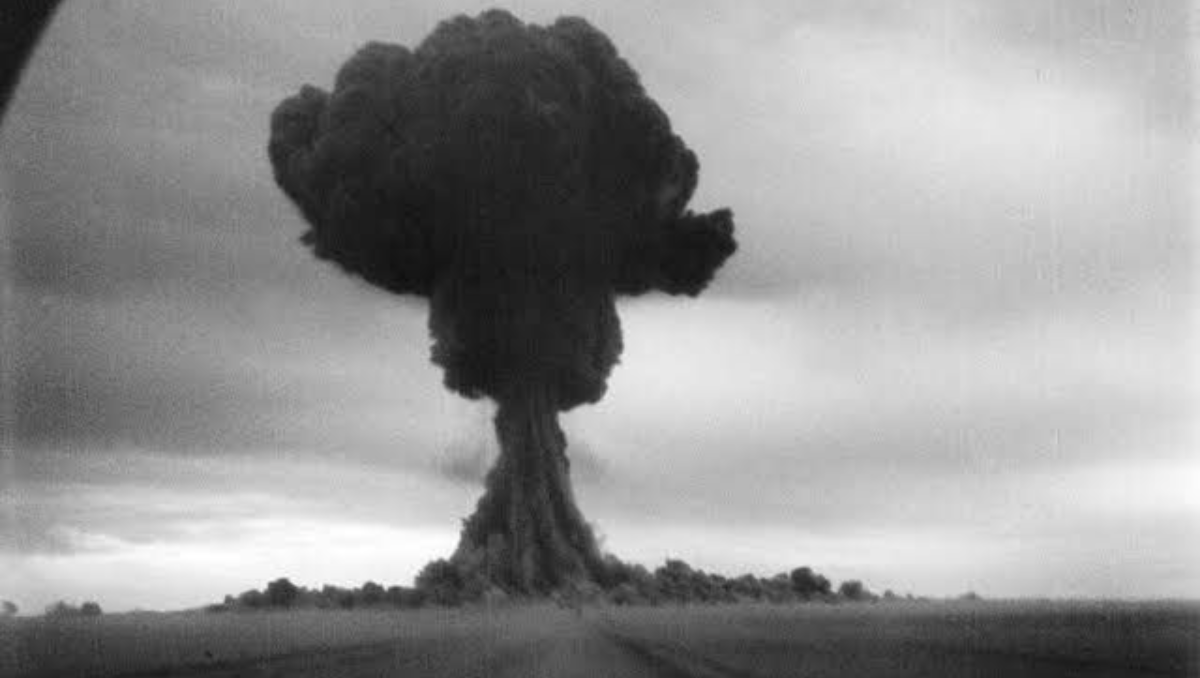On Tuesday, Russia’s parliament took the first step toward revoking ratification of the Comprehensive Nuclear Test Ban Treaty, and its top legislator warned the US that Moscow might potentially quit the treaty entirely.
Table of Contents
The Soviet country claims the goal is to restore parity with the United States, which signed but never ratified the 1996 deal, and that testing will not restart unless Washington does. However, arms control specialists are afraid that Russia is edging closer to a test that may inaugurate a new era of large power nuclear escalation, which the West would interpret as a Russian nuclear escalation in the midst of the Ukraine war.
Volodin and Putin’s statements
According to the Russian parliament’s speaker, Russia is withdrawing its ratification of the Comprehensive Nuclear Test Ban Treaty due to the United States’ irresponsible attitude to global security. Since the United States had not accepted the treaty, President Vladimir Putin has previously considered canceling ratification. Russia will remain a signatory and will continue to cooperate with the Organization for the Prohibition of Nuclear Tests and the Global Monitoring System.
Speaker Vyacheslav Volodin, a member of President Vladimir Putin’s Security Council, expressed that their vote is a response to the USA’s perceived crass approach to their global security responsibilities. He conveyed to the parliament, “And what we will do next – whether we remain a party to the treaty or not, we will not tell them. We must think about global security, the safety of our citizens, and act in their interests.” Volodin emphasized the need to prioritize global security and the well-being of their citizens without disclosing their future course of action.
Russia intends to maintain its status as a signatory.
While Russia withdraws its ratification, it will remain a signatory and will continue to work with the Organization for the Prohibition of Nuclear Tests and the worldwide monitoring system, which informs the world to any test.
A resumption of nuclear tests by Russia, the United States, or China might signal the start of a new nuclear arms race between the major nations that ceased nuclear testing in the years following the Soviet Union’s demise in 1991. For many scientists and activists, the Cold War’s flurry of nuclear weapon testing demonstrated the foolishness of nuclear brinkmanship, which may eventually kill humanity and poison the earth for hundreds of thousands of years.
However, the Ukraine conflict has heightened tensions between Moscow and Washington to their greatest level since the 1962 Cuban Missile Crisis, at a time when China is seeking to beef up its nuclear arsenal to reflect its role as an emerging superpower.
Consequences
The idea of Russia’s withdrawal from the pact raises fears about the possibility of a resurgence in nuclear testing around the world, perhaps sparking a nuclear arms race including the US, Russia, and China, among other rivals.
Nonetheless, Russian President Putin has reiterated his country’s aversion to resuming nuclear testing. On October 5, he addressed the subject, adding that there are calls for nuclear weapons testing to be restarted and revisited. Mr. Putin went on to say, “I am not prepared to determine whether conducting tests is necessary, but theoretically, we could adopt a similar approach to that of the United States.”
Putin has also stated that he sees no need to revise Russia’s nuclear doctrine, which states that Russia would only order a nuclear strike if it was attacked or if the state’s existence was threatened by a conventional attack.
Ten nuclear tests have occurred since the CTBT. According to the United Nations, India conducted two tests in 1998, Pakistan conducted two tests in 1998, and North Korea conducted tests in 2006, 2009, 2013, twice in 2016, and once in 2017.
The possibility of nuclear testing by Russia
The former Soviet Union conducted the final nuclear test in 1990, and Russia has yet to open its account. The United States, on the other hand, carried out its last nuclear test in 1992.
According to the United Nations, over 2,000 nuclear tests were conducted between 1945 and 1996, with the United States conducting 1,032 and the Soviet Union doing 715.
In a phone conversation, Baklitskiy stated that a Russian test is not imminent, but that “the more you go in this direction, the less of a big decision you would have to make” to proceed with one.
The scale of nuclear bomb testing during the Cold War, according to many scientists and activists, demonstrated the foolishness of nuclear brinkmanship, which may ultimately destroy humanity and poison the planet for hundreds of thousands of years.
